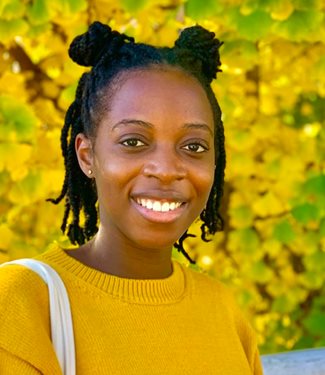
Top stories






More news














Logistics & Transport
Maersk reroutes sailings around Africa amid Red Sea constraints



Ilunga is a qualified civil engineer and city planner, but her path hasn’t been straightforward. Born in a small town in Tokyo, Japan, where her family had moved to support her father’s studies in the country, these early years set the scene for a layered life story.
After spending her formative years in Japan, Ilunga and her family returned to their native Democratic Republic of Congo. The return was short-lived, however, as the ongoing civil war prompted her parents to explore a more stable life in post-apartheid South Africa. By the age of ten, she had lived in three vastly different countries and had fragments of Japanese, French and English swirling in her head.
It was through an English lesson activity in primary school, where each learner had to write their autobiography, that her unusual start to life began to make sense to Ilunga – simultaneously igniting within her a passion for writing and storytelling. “When I came to South Africa and had this long period of stability in my education, I found the most comfort in writing and storytelling,” she said. “I was obsessed with English, not so much the language but the storytelling aspect. I think that marked the ways in which I connected my different experiences.”
Seemingly paving the way for tertiary studies in language or creative writing, Ilunga’s parents encouraged her to take a more financially secure route and study engineering instead. Ilunga tried to make it work but felt stuck. She spent her first two years at the University of Cape Town (UCT) agonising about changing degrees, but unclear about the alternatives. In her third year, thanks to her Social Infrastructure Engineering elective, Ilunga’s perspective began to shift, and her mind was opened to the potential of an adjacent academic path.
“The course asked us to reflect on what we think about human-centred engineering designs, to think about and interrogate what community means and the people who are going to be impacted by our engineering… It asked us to interrogate power and privilege,” she said. “Because in engineering, we were told ‘We are the gods of Earth’... then here’s this social infrastructure course that’s asking, ‘But who are you to do this? And how does it impact other people?’”
So transformative was her experience that Ilunga completed her studies with a new-found desire to reimagine engineering curricula. She wanted to overhaul the system and started by volunteering to tutor for the course.
Shortly after, during her Master’s studies in City and Regional Planning as a recipient of the Mandela Rhodes Foundation (MRF) scholarship, Ilunga had her next definitive experience: an encounter with design thinking.
While planning her first solo trip to Japan, and overwhelmed by its significance, Ilunga’s partner, an alumnus of Hasso Plattner d-school Afrika at UCT, applied the design thinking process to help Ilunga curate her itinerary. She was impressed – struck by how he guided her through defining a problem statement that captured her precise anxieties, marking the beginning of her colourful journey with the approach.
She describes her experience with the d-school Afrika’s Foundation Programme in Design Thinking as intensive but life-changing. The course introduced her to the key mindsets, values and problem-solving techniques of design thinking that changed how she viewed challenges in her work and life. Enrolling in the foundation programme mid-master’s enabled Ilunga to enrich her studies and her involvement in UCT’s Global Citizenship Programme (where she was the course convenor), all while interning at MRF.
During her internship, she designed and co-facilitated MRF’s Second Year Leadership Development Programme using design thinking. She made such an impression that the foundation asked her to come on board as a programme design consultant where she could explore social justice education more intently.
A research fellow at Meiji University and currently pursuing a PhD in Engineering specialising in Urban Design through Keio University, Ilunga’s résumé speaks to her nimble mind and unflagging drive. But what stands out is her ambition to give other students positive, empowered academic experiences all while applying an empathetic, community-centric, design-thinking-inspired approach to urban design and planning.
As a storyteller-urbanist, Ilunga hopes to positively influence the future of others and those that continue to be designed – all in the pursuit of spatial equity.